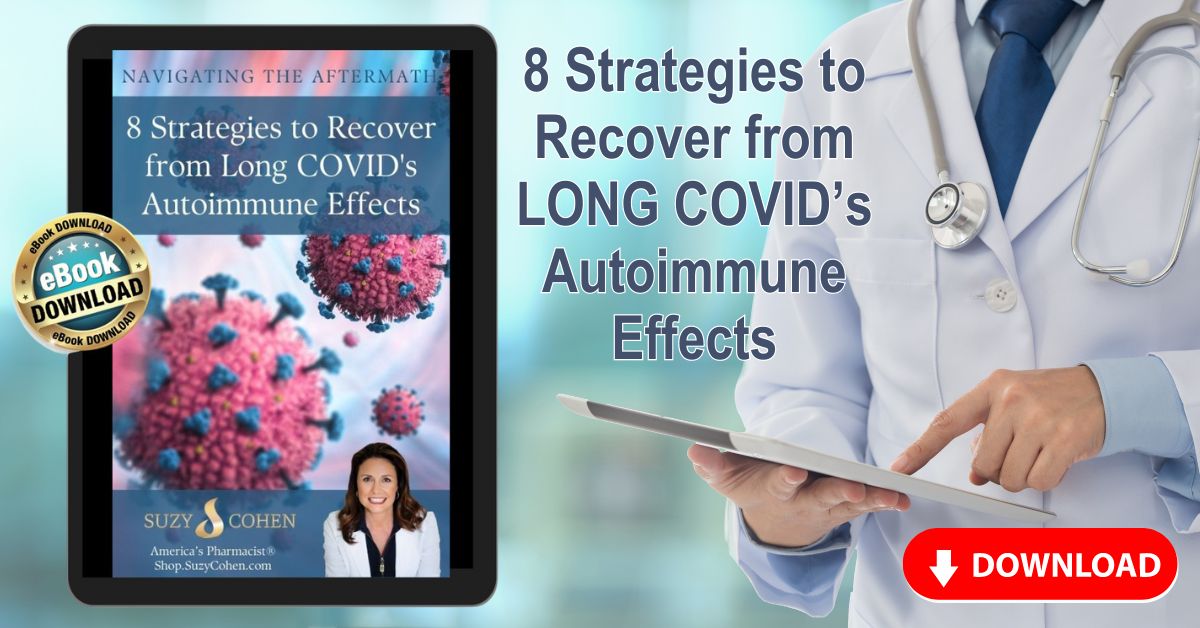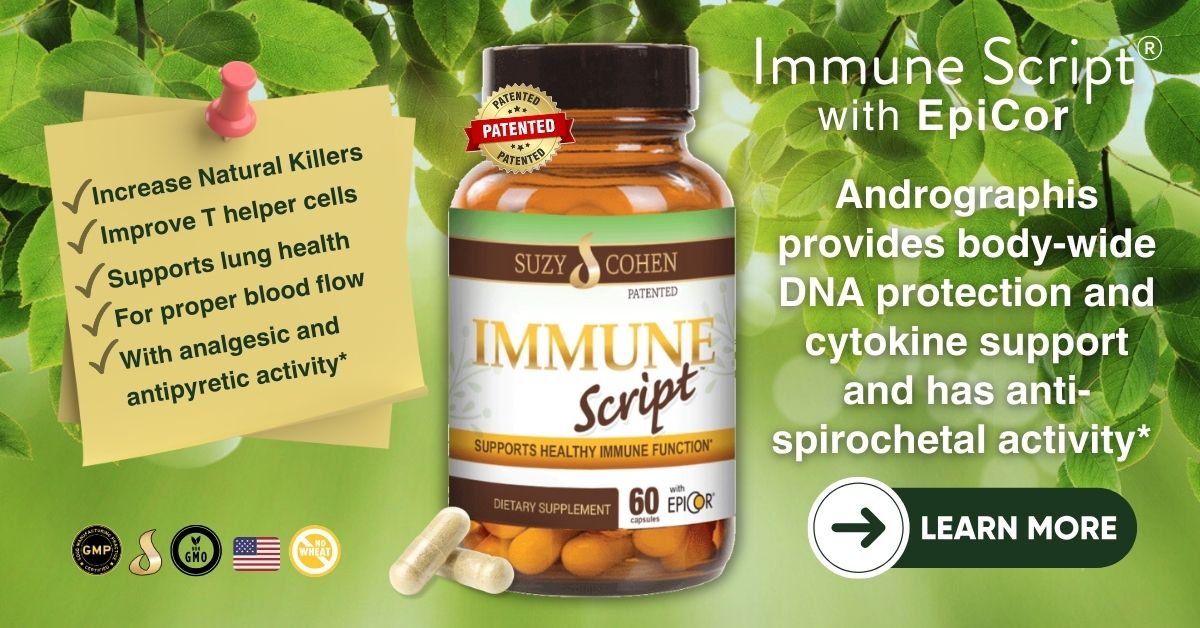What's On This Page?
ToggleIt’s not the first time that studies have proved sweets are bad for your immune system. We knew of course, that they’re bad for the waistline, and that excessive amounts hinder your ability to fight infection.
We’re seeing more research lately about how spikes in sugar cause your body to attack itself with more vigor. Autoimmune disorders are exacerbated by eating a lot of foods and beverages that are high in sugar. The same goes for both refined and complex carbohydrates. That statement will fly in the face of what many nutritionists believe, but I’m writing an opinion column, and that’s my opinion. I’d keep the refined ones out of your diet, and the complex ones to a minimum!
I’ll tie in a nice neat bow right now: Sugar increases Th17 which suppresses immunity and increases autoimmune disorders.
There are 80 different autoimmune diseases, most people think there are just a dozen or two – the main ones being Type 1 diabetes, lupus, rheumatoid, multiple sclerosis, GRAVES’ DISEASE, Hashimoto’s (read my ARTICLE), psoriasis, eczema, scleroderma, Sjogren”s and Addison’s. But again, there are at least 80, and I think 100 more will one day be identified when we have better testing capabilities. We are also seeing more an more autoimmune cases in the post-pandemic era.
Sugar also leads to more pain and inflammation in the body by increasing obesity, and altering the secretion of various ‘feel full’ and hunger hormones. Excessive carbs and sugary treats cause a rise in both obesity and autoimmunity. Extrapolating from this, a multitude of health problems ensue including heart disease, stroke, Type 2 diabetes, hypertension, asthma, low back pain, and arthritis. It causes inflammation due to the roller coaster of sugar highs and lows.
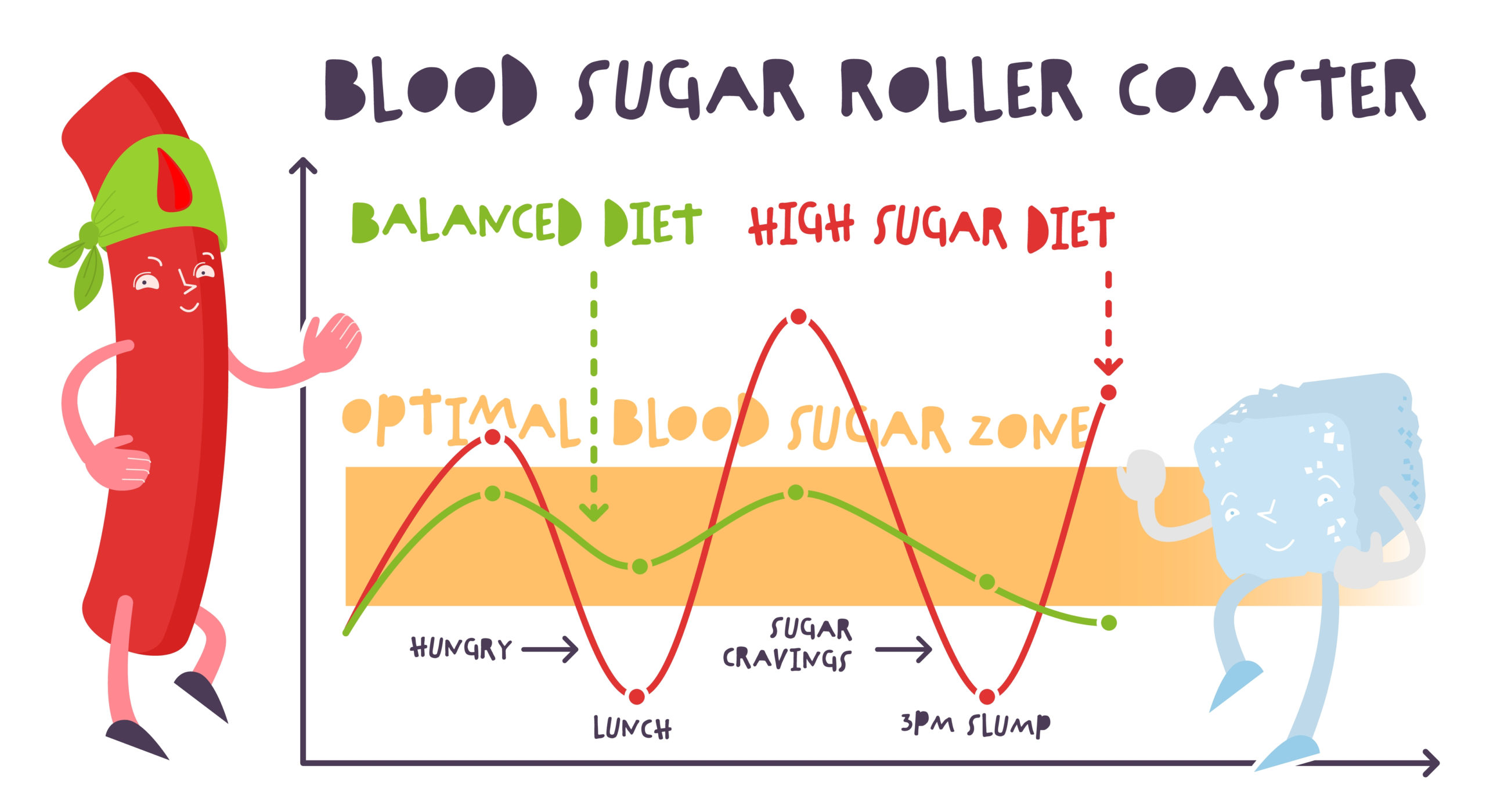
So today’s article is to inform you that a lot of sugar is bad for you! This may come as a surprise to some people because they may have believed the commercials on TV which indicate (at least subliminally) that sweets are what makes a person happy and healthy. I do eat sugary treats myself, but in moderation, maybe once a month or every other, sometimes longer.
I do eat dark chocolate, that’s my cheat treat. We know that the human body requires glucose to survive, but I’m referring to the chronic intake of sweet treats, like dessert every day, or every meal… soda with every meal, high-carb lunches, and dinners… this is bad for so many reasons, and the most important one is autoimmunity.
Modify the Self-Driven Attack
If your body begins to attack itself as a result of this type of diet, you’re in for a lot of medical treatments and expenses.
If your own body is killing its own organs, literally cell by cell, you don’t stand a chance so you need to modify the self-driven attack with a choice made at every meal. You need to do that because you won’t win, the autoimmune disease well. So that choice will mean that you have to avoid foods and beverages that contain sugar or other sweeteners that can produce the same glycemic high in the body. This now gives you more control and the ability to fight and beat it!
Very soon, I’ll be sharing a disease list and conditions that are associated with high Th17, which again comes from eating sweets. Just in case you have any kind of autoimmune disease, or you have fibromyalgia, fertility problems, osteoporosis, asthma, or any kind of heart disease… these are associated with elevated Th17 cells, which become elevated in the presence of… you guessed it, intake of sugary foods!
T cell Activation
It’s called T-cell Activation! We need this to occur for normal human processes, but it’s not good when it the pathway is over-stimulated and becomes hyperactive. This correlation between sugar and T-cell overactivity is not necessarily a cause-and-effect relationship, we just know it is tightly correlated and well-documented.
T cell activation is like turning on the switch of a highly specialized cell in your immune system to fight against infections or diseases. When your body detects something foreign, like a virus or bacteria, it presents little pieces of the invader (antigens) to the T cells.
This presentation is kind of like a military briefing where the immune system shows the T cells a snapshot of the enemy. This is done by professional “presenter” cells called antigen-presenting cells (APCs). When the T cell receptor (which is like a sensor) on the surface of a T cell recognizes this specific snapshot, it triggers a series of events inside the T cell.
This trigger flips the T cell’s “on” switch. The T cell then starts to divide and create an army of identical cells, all designed to target the specific invader. These T cells can either directly attack the infected cells, or they can produce chemicals that coordinate and amplify the immune response, rallying other cells to join the battle.
In essence, T cell activation is the process by which your immune system identifies, plans, and mounts a targeted attack to protect your body from what it perceives as threats, ensuring you stay healthy.
T-cell activation (more like hyperactivation) leads to disease!!! The sugar is acting like the “antigen” if you are looking at my graphic below. And new data released proves it.
We also know that autoimmune disorders involve multiple factors like genetics, environment, age, and more. I’m not saying that if you eat a lot of ice cream and candy, you’ll get Hashimoto’s. There’s more to it than that. Here’s a link in case you’re interested in my other article, Thyroid 101 Understanding Basics of Hypothyroidism and Autoimmune Thyroid Illness.
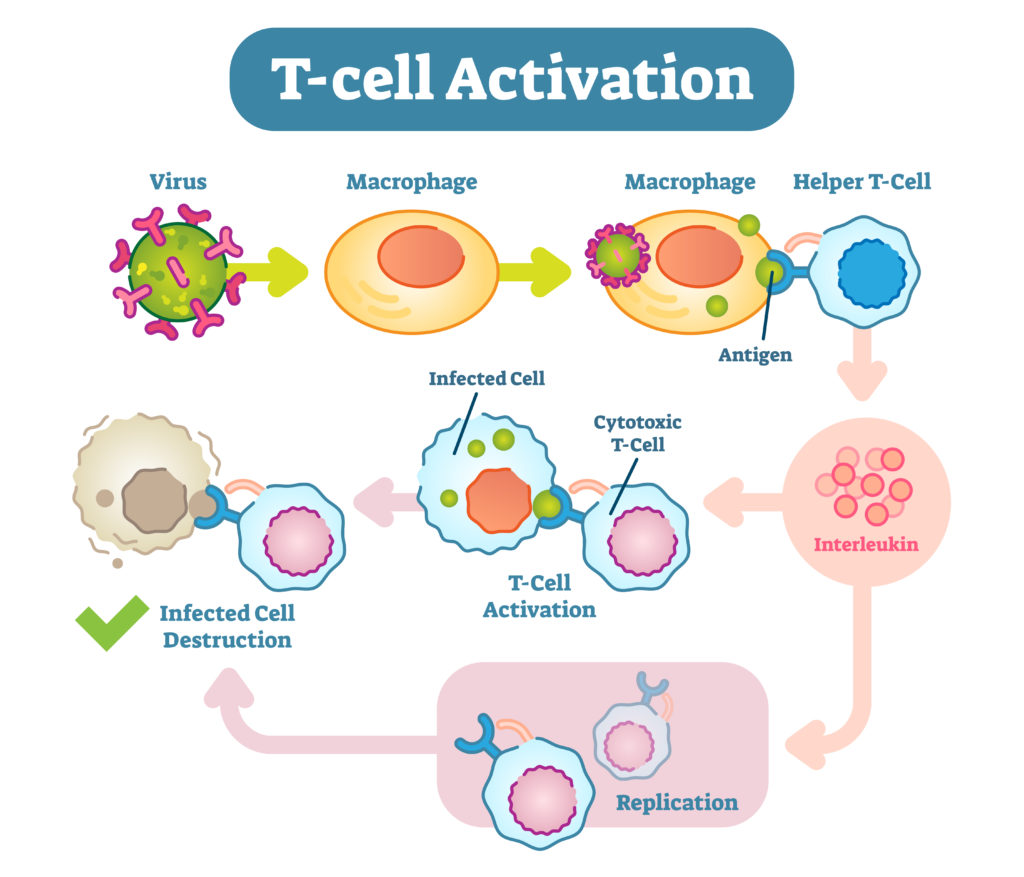
Harder to Fight Infections
It may be ironic to you because if you think about it, we know that people can’t fight infections as well if their sugar intake is high. So if that’s the case, why is the immune system fighting its own body harder? You’d think the attack upon self would be weaker, not stronger. But it’s exactly the opposite, the autoimmune attack upon self is much stronger, and that’s because levels of Th17 cells go up. Th17 in moderation is good, but overactivity causes pain and autoimmunity.
In this STUDY it was shown that high glucose intake (ie lots of sweets) spawns a lot of free radical damage. I always think about the term “free radical damage” which refers to free radicals. There’s nothing “free” about its effect on the body! Sweets come with a high price, and I don’t mean diabetes.
I mentioned infertility being related to elevated Th17. They think that there is an attack on sperm by the woman’s own immune system due to Th17 overactivity. You can read more about this specific topic in this PAPER.
A Strategy to Reduce Th17 and Autoimmune Attacks
The plan of action includes 3 important things.
1. Change your diet
Try to make the most healthful decisions at every meal. Completely eliminate all sugary foods, all candy, and sweets, and all refined carbohydrates like bagels and white rice. I would greatly minimize complex carbohydrates as well.
Things in this category include brown rice, beans, starchy vegetables like peas, and whole-grain bread. I know this is very hard, and I have compassion for anyone trying to do better with diet. When we see delicious treats, our brain goes somewhere good!
It’s extremely hard to stop the thought of eating sweets once we see them. Get them out of your house. Don’t linger for dessert at the restaurant, and eat more fats. Fats (and protein intake) greatly cut down on sugar cravings if you can get past the first week.
2. No Artificial Sweeteners
And since you’re asking me, I suggest you also eliminate ALL sugar substitutes and the tasty fake sugars – anything sweet – because it evokes the same craving as real sugar. Do the best you can to eat as clean a diet rich in high-quality protein and fat, and very low in carbohydrates.
This will put you into ketosis so be careful. Think along the lines of carnivore or keto and research those types of diets if you are afflicted with a serious autoimmune condition. If you must have a sweetener for your coffee for example, perhaps a little monk fruit or stevia. After you achieve your desired health goals and/or weight goals, you can add in more sweeteners and experiment with some complex carbs. Don’t eat too late at night and exercise to your level.
A Word About Kombucha and Autoimmunity
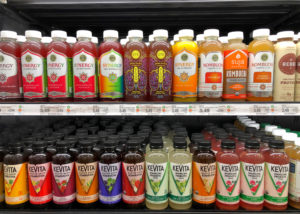
Kombucha, a fermented tea drink, is often touted for its health benefits, but its suitability for everyone is debated. This confusion arises because while fermented foods can be healthy, kombucha is high in histamine, a substance that can aggravate certain health conditions.
Histamine can cause reactions in the body similar to allergic responses and can also promote the growth of yeast in the gut. For individuals with autoimmune diseases, consuming foods high in histamine or that may exacerbate yeast overgrowth is generally not advisable, especially during flare-ups, as these conditions can potentially worsen autoimmunity.
Therefore, based on these considerations, some health experts might recommend against kombucha for people with autoimmune conditions.
Sometimes taking kombucha and other high-histamine foods out of your diet will improve symptoms, but to see results, you have to keep clear of the offending food(s) for weeks, if not months. It can be a challenge, but you can do it. If you want to substitute another beverage, I feel that iced or hot green tea is your best bet! You can also try ginger tea (hot or cold) because ginger can mildly reduce Th17.
3. Try to Sleep
Try to avoid stress and get proper sleep. We know that melatonin deficiency is associated with increased autoimmunity, so getting proper rest could make life easier. If you need help with sleep apnea, see a specialist. You may also be interested in this article I wrote, 9 Strategies to Stop Sugar Cravings Now.
4. Consider Supplementation
Zinc, Vitamin D, and Folate (a methylated B vitamin) are the most helpful in reducing Th17 overactivity. Of course, healthy microbial balance in the gut will produce faster results. I wouldn’t blame you if you wanted to try probiotics, CBD, curcumin or even Boswellia! These are all very powerful methods of controlling autoimmunity.
Medications that Reduce Th17 and Autoimmunity
You may be wondering if there are any medications that lower Th17, and there are. Aspirin and metformin are the two best-known medications and the latter requires a prescription. It is prescribed for pre-diabetes, diabetes, and metabolic syndrome which may be alleviated by the diet described above, so with that in mind, I’d keep it in my back pocket, rather than a first choice. Of interest is estrogen and progesterone so if you are hormone deficient, consider HRT and use The DUTCH Complete test along with blood/saliva tests to evaluate your progress.
Summary
In the presence of chronically high blood glucose, a person develops what’s called Th17 dominance. That’s where there are too many T helper-17 cells. Experiments done on mice show that even the brain gets more inflamed in the presence of high glucose! It’s because Th17 activates a cytokine called TGF-beta and that messes things up.
Spare you the scientific speak, and just say it makes for a cytokine storm that launches new symptoms, lots of pain, and unrelenting inflammation! No amount of ibuprofen will help a person with a bad episode of psoriasis, rheumatoid, scleroderma, or MS.
A diet high in sugar that gets reduced does not cure an autoimmune disorder. But it will, well it should, at least help! We know that normal glucose levels help to reduce Th17 and thus, it can only help! Luckily, it is a 100% modifiable lifestyle risk factor. One can change their intake of sweets by making the choice.
If you are not responding to your dietary changes within a few months, or you experience anything untoward, please contact your doctor. Remember, your goal is to reduce your Th17 if you have serious immune problems or constant pain. But of course, you have to use common sense and make sure you see your physician for routine lab work just in case something else unbeknownst to you is driving these symptoms.
Some of you may be interested in my immune-support formula, Immune Script.

Suzy Cohen, has been a licensed pharmacist for over 30 years and believes the best approach to chronic illness is a combination of natural medicine and conventional. She founded her own dietary supplement company specializing in custom-formulas, some of which have patents. With a special focus on functional medicine, thyroid health and drug nutrient depletion, Suzy is the author of several related books including Thyroid Healthy, Drug Muggers, Diabetes Without Drugs, and a nationally syndicated column.
